The 96th edition of the Academy Awards came and went last Sunday without much fanfare. Mercifully, Monday’s reviews were more about who won, instead of tabloid headlines like wardrobe malfunctions or acceptance speeches gone wrong. I only watched the opening monologue, and not because I cared about what Jimmy Kimmel had to say. Rather, I wanted to see if I could spot a seat filler.
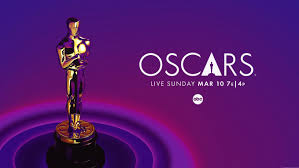 Back in my days as a mid-level manager in corporate America, dozens of resumes came across my desk for prospective employees. Their sections on “previous experience” sometimes caught my eye, if only for the really strange stuff people do with their time. Innovation Sherpa. Hacker. Direct Marketing Demigod. Happiness Hero. I wouldn’t sign up for any of those “jobs” but hey, at least they come with a paycheck. The only compensation a seat filler gets is a free ticket to the show.
Back in my days as a mid-level manager in corporate America, dozens of resumes came across my desk for prospective employees. Their sections on “previous experience” sometimes caught my eye, if only for the really strange stuff people do with their time. Innovation Sherpa. Hacker. Direct Marketing Demigod. Happiness Hero. I wouldn’t sign up for any of those “jobs” but hey, at least they come with a paycheck. The only compensation a seat filler gets is a free ticket to the show.
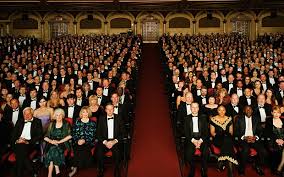
If the title isn’t self-evident, a seat filler is someone who attends a televised event (like the Academy Awards) and stands in the shadows of the outside aisles until a “real” attendee gets up to get a drink, use the restroom, socialize, or whatever. The seat filler then dashes over to occupy the seat until the person returns, so the panning cameras give the television audience the impression the event is always filled to capacity.
I could spend several hundred words talking about the myriad ways live TV manipulates a viewer’s perception (flashing “APPLAUSE!” signs come to mind) but seat fillers may be the most absurd of all. Thousands upon thousands of people apply for these opportunities, with only a handful chosen for a given event. As if remaining nameless among the Hollywood elite isn’t humbling enough, seat filling is last-minute employment with all expenses paid by… you.
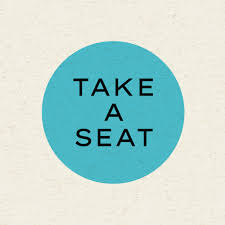 Imagine opening the email. Congratulations! You’re going to the Grammy Awards! There’s the good news. The bad news is, now you have to book an expensive flight and hotel, buy or rent a dress-code-worthy tux or formal gown, and plead for last-minute approval from your employer for a few days off. Assuming you do make it to the Grammy Awards, you’re subject to a strict set of behaviors. Surrender your ID and smartphone. DON’T walk on the red carpet. DON’T talk to celebrities (unless they talk to you first). And plan on being on your feet for hours, in a covert location where you can’t even see the show, waiting for the command from the Manager of Seat Fillers to “fill that seat!”
Imagine opening the email. Congratulations! You’re going to the Grammy Awards! There’s the good news. The bad news is, now you have to book an expensive flight and hotel, buy or rent a dress-code-worthy tux or formal gown, and plead for last-minute approval from your employer for a few days off. Assuming you do make it to the Grammy Awards, you’re subject to a strict set of behaviors. Surrender your ID and smartphone. DON’T walk on the red carpet. DON’T talk to celebrities (unless they talk to you first). And plan on being on your feet for hours, in a covert location where you can’t even see the show, waiting for the command from the Manager of Seat Fillers to “fill that seat!”
As one filler described the experience, maybe there really is a breathless kind of rush when you plop down next to someone like Taylor Swift or Beyoncé. But let’s get real here; celebrities see a seat filler coming from a mile away. How many of them are going to engage with a smile, let alone a word of acknowledgement? Even if you did manage to exchange a sentence or two, you’re going to ask yourself, “Why did I say that to Taylor?” for the rest of your days.
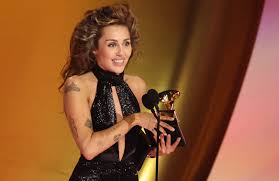
Without your phone, you won’t be able to capture your seat-filling fifteen minutes of fame. You’ll be lucky if you nab a copy of the event program (which can be purchased online anyway). Seat filling is a the very definition of “anonymous”, and it’ll be hard to convince your friends and family you were even there. Unless the TV camera points your way at just the right time, of course.
As for my careful study of the Academy Awards audience on Sunday night, it seemed like a fun game at the time. Pause the picture when the camera pans the people, then walk up to the screen and play a sort of “Where’s Waldo?” (or Wendy) to spot the seat fillers. But I quickly realized the error of my ways. I can’t even recognize the actors. They’re either the too-old versions of the ones I remember (sorry people, the Botox doesn’t help) or they’re the too-young versions of actors I’ve never seen in anything at all.
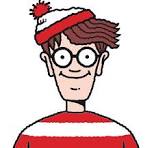 Suffice it to say, I will never be a seat filler. If I ever go to an awards show it’s because I’m a “real” attendee who deserves to be there (in other words, another lifetime). In this life, I’ll consider more appealing employment prospects for my retirement. Beverage Dissemination Officer. Golf Ball Diver. Professional Sleeper. Hey, at least those pay.
Suffice it to say, I will never be a seat filler. If I ever go to an awards show it’s because I’m a “real” attendee who deserves to be there (in other words, another lifetime). In this life, I’ll consider more appealing employment prospects for my retirement. Beverage Dissemination Officer. Golf Ball Diver. Professional Sleeper. Hey, at least those pay.
Some content sourced from the Business Insider article, “I was a seat filler at last year’s Grammys…”, and Wikipedia, “the free encyclopedia”.




